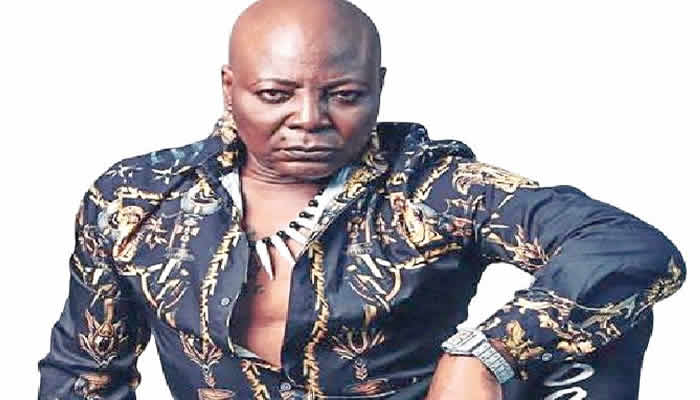Veteran entertainer and human rights activist, Charles Oputa, popularly known as Charly Boy, has knocked the Bariga Local Council Development Area, Lagos State, for renaming the popular Charly Boy Bus Stop in Bariga after renowned hip-hop artist, Olamide Adedeji, aka Olamide Badoo.
Charly Boy, who is also known as “Area Fada” and the convener of Our Mumu Don Do movement, accused the government of acting out of fear and political insecurity.
The council chairman, Kolade David, whose tenure ended on Friday, announced the renaming of the bus stop, stating that the move was part of efforts to honour individuals who have brought pride to Bariga and contributed to Nigeria’s global image through their craft and contributions.
“As an administration, we took our time to reflect on a number of our people who have put the name of our local council out on the global map through their respective God-given talents and craft, as well as eminent personalities in our nation and our beloved state and local council who have contributed immensely to the development of our nation and our state. Today, we will be officially renaming streets in honour of the legacies.
“Ajidagan Street will now be called Olamide Adedeji Badoo Street. That means that Charly Boy Bus Stop will now be changed to Badoo Bus Stop, no more Charly Boy,” David said.
But reacting to the development in a statement posted on his X (formerly Twitter) handle, Oputa stated that the renaming was not merely symbolic, but a calculated attempt to erase his decades of activism and social defiance.
Charly Boy, who is the son of former Supreme Court Justice, Chukwudifu Oputa, noted that renaming the bus stop would not change his legacy of speaking truth to power and fighting for the oppressed.
“You can rename a place, but you can’t rename a legacy. You can replace the signboard, but you can’t erase the spirit. And you definitely can’t silence a voice that shook your tables for decades!
“This is not just about a bus stop; this is about fear. Fear of a boy who refused to bow. Fear of a man who challenged the oppressors. Fear of a man who didn’t beg the system to be accepted.
“So, what do timid people do? They change the name like e go wash away their shame,” he said.
Charly Boy maintained that the bus stop earned its name organically from the people, not from political patronage.
“Bariga, Gbagada, the entire Lagos knows the truth, that the name Charly Boy Bus Stop was not given by politicians, it was named by the people, the same people ‘Fada’ fought for, walked with, and empowered.
“They may change the signboard, they may pretend not to remember, but let me remind them ‘Area Fada’ no dey finish. He didn’t need to sing sweet songs to be accepted. He didn’t need to wear ‘agbada’ to beg for titles. He is a movement. He is an institution. He is a warning.
“So, to all the small minds and timid hearts, you may change the name, but you will never kill the legacy,” he added.
He noted that he remained unperturbed by the government’s action, insisting that his legacy was built by the people, not politicians, and could not be erased by a mere change of name.
The activist said, “This name, Charly Boy is carved into the history of Nigeria, written boldly in the streets of Bariga. Etched into the minds of those who still dare to question authority. Legacy isn’t on a signboard, it is in the hearts you changed, the voices you awakened, and the fear you planted in corrupt souls.
“So, go ahead, change the name, but remember you can’t change the truth. You can’t erase fire. ‘Area Fada’ no dey finish.”
Also reacting, human rights activist, Omoyele Sowore, described the renaming as “vindictive, haphazard, and laced with ethnic undertones.”
Sowore, in a statement made available to Sunday PUNCH said, “I strongly condemn the cynical renaming of the Charly Boy Bus Stop—an iconic landmark tied to decades of creative resistance and people-powered culture in Nigeria. This act is not just petty; it is a spiteful rewriting of history meant to silence dissent and discredit voices that have long challenged authoritarianism.”
When contacted, the state Commissioner for Information, Gbenga Omotosho, said the state was not responsible for naming or renaming streets, adding that the council chairman acted within the ambit of the law.
“Street naming is a local government matter. The state government doesn’t have that responsibility. The law gives local governments the right to name or rename streets. The state government does not have the authority to regulate that,” Omotosho said.
- Punch

